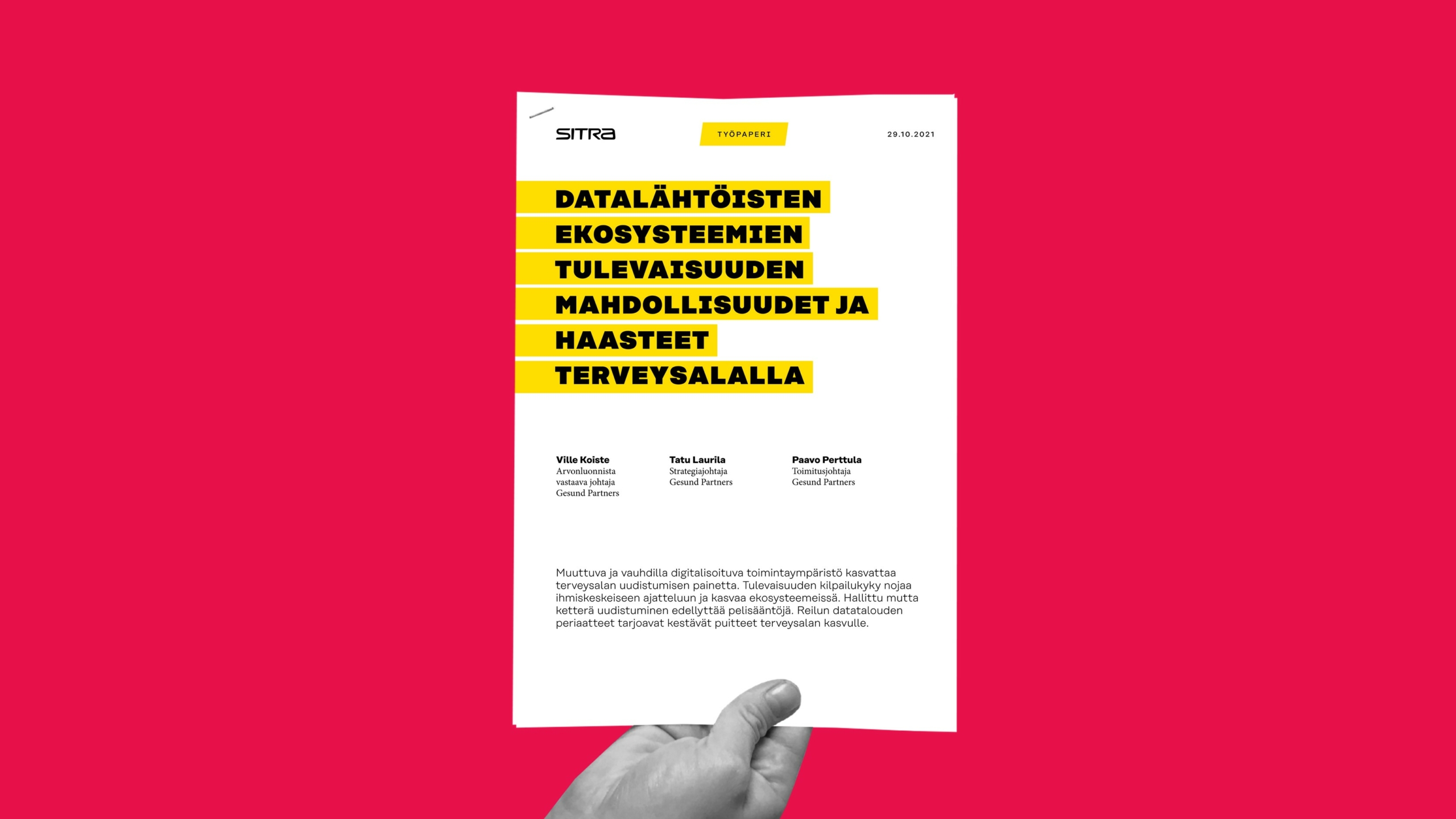Summary
The potential benefit of the health sector is much more than tax income and the value of exports. A healthy population that enjoys well-being is an essential foundation of a sustainable and forward-looking society. Data and digitalisation are transforming the health sector, and the sector’s ecosystems are a major part of that change. We will look at ecosystems from the perspective of three archetypes and the structures that facilitate them, and present an estimate of the maturity of each archetype in terms of implementing the principles of the fair data economy.
The competitiveness of Finland’s health-sector ecosystems in the data economy is based on the solid expertise of the parties involved, shared data resources and a culture of co-operation and trust. Ecosystems are important in many ways. They enable the enrichment of expertise, development, innovation and business, and will maximise the impact of the social welfare and healthcare system when RDI (research, development and innovation) activities in the new welfare areas in Finland get underway in 2022. In particular, more attention needs to be paid and new methods developed to improve co-operation and the partnerships between the public social welfare and healthcare services system and other health sector ecosystem parties.
Joint value creation is a key principle of the fair data economy. It means the value generated by the ecosystem for its members, clients and society as a whole. Sustainable competitiveness emerges when co-operation between an ecosystem’s parties and the ecosystems develops into a cycle of joint value creation. Data is the foundation of everything, and those producing it must also be able to draw value from the co-operation so that the foundation grows stronger.
Data is power. With analytics and algorithms playing an increasingly important role in decision-making and well-being, the risk of discrimination or unethical solutions also increases. However, it would be unreasonable to ignore the opportunities provided by data and artificial intelligence to prevent diseases and develop innovations that improve health and well-being – and those opportunities for business in general – because of this risk. We need regulation that enables, a shared value base and principles for a fair data economy that enhance the trust in the parties involved and the general public.
The increasing quantity and varying quality of health and well-being data means that there is a growing emphasis on the role of the individual to manage the bigger picture and the appropriate consent. To enable this new, more active role in the health sector ecosystems in the future requires a strengthening of the population’s resources through communication and education. An open and critical public discussion on the direction of the development must be present in a fair and human-driven data economy.
The Finnish health sector’s ecosystems are in a strong position to ensure sustainable growth and increasing competitiveness. Our expertise also continues to be attractive at the international level. We now need the government to take action that demonstrates that the strategic intent to support data-driven research and development still exists. Correcting the deficiencies in the current legislation and preparing new enabling legislation is a prerequisite for strengthening the credibility and competitiveness of the ecosystems. Succeeding also requires that the ecosystem’s parties have a strong shared will and are committed to joint action to fulfil the promise of the fair data economy.
